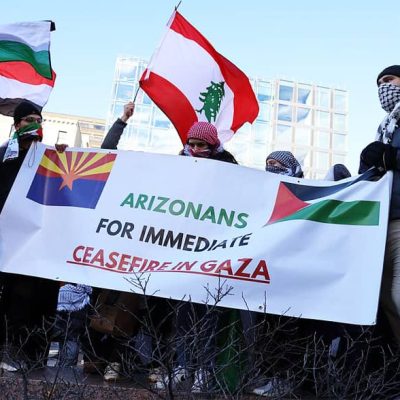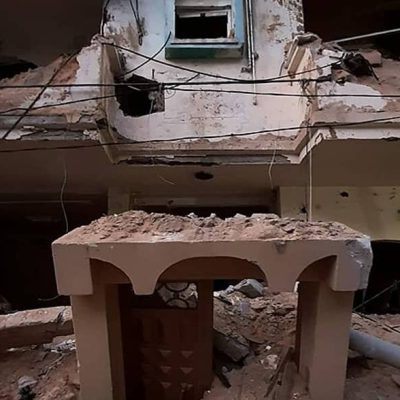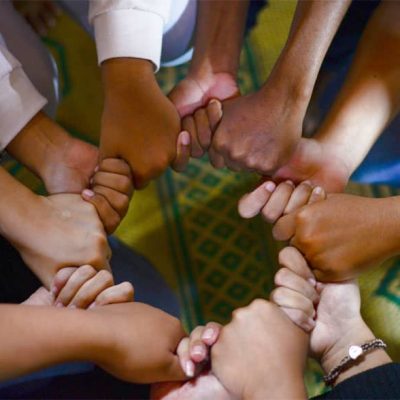 Appeals
Appeals
Libya: The Fairy Godmothers hoping to bless a new…
Photo by Levin on Unsplash
by Rene Wadlow. |
|
|
The Fairy Godmothers of world politics met in Berlin, on 19 January 2020 to assist at the birth of a State structure arising, from the currently deeply divided factions of Libya: German Chancellor, Angela Merkel and U.N. Secretary-General Antonio Guterres, were the co-hosts with the Turkish Recep Tayyip Erdogan, Russia’s Vladimer Putin, France’s Emmanuel Macron, the U.K.’s Bosis Johnson, the USA’s Mike Poupeo; as well as the less easily recognized officials – Prime Minister of Italy, Giuseppe Corte; and the representatives of China, Egypt, Algeria, and the United Arab Emirates. There were also representatives of the major intergovernmental organizations involved in Libya: the United Nations, the European Union, the African Union and the League of Arab States. The Berlin Conference.The Final Document of the Berlin Conference is an effort to please all participants; but in fact; on the crucial issue of the creation of a functioning administration for Libya; there was only a broad vision of a desirable future: a single, unified, inclusive, and effective Libyan government that is transparent, accountable, fair with equitable distribution of public wealth; and resources between different Libyan geographic areas, including through decentralization and support for municipalities; thereby removing a central grievance and cause of recrimination. The creation of such State structures has been the chief issue since 1945; when the Allies – Britain, the USA and the USSR – agreed that the Italian colonies should not be returned to Italy; although Italian settlers were encouraged to stay. The Allies did not want to create the structures of the new State; believing that this task should be done by the Libyans themselves. Also; the three Allies disagreed among themselves as to the nature of the future State. The Creation of a Libyan State.By 1950-1951 with more crucial geopolitical issues elsewhere; the Allies were ready for the creation of a Libyan State. It seemed that a monarchy was the most appropriate form of government; as there were no structured political parties that could have created a parliamentary government. Thus in 1951; Idris was made the King of the State. Idris was the head of the Senussi Sufi Order; created by his father. The Senussi Sufi Order had branches in most parts of the country. Idriss ruled the country as if it were a Sufi order; and did little to structure non-religious political structures. Idris ruled until September 1969; when he was overthrown by Muammg Qaddafi. The Authority Of The People.Qaddafi was also not interested in creating permanent political parties which; he feared, might be used against him. He called himself “the Guide of the Revolution” not “President” and Libya became the Libyan Jamaihirya; that is, the authority of the people. The closest model to Qaddafi’s vision is a Quaker Meeting; where decisions are taken by consensus and compromise at the local level. These decisions are then sent as recommendations to the next higher level; where by consensus and compromise again a decision is taken. Ultimately, these decisions reach to the top of Libya; and the “Guide” sees how they can be carried out. The problem with the governance of Libya; was that not everyone was a member of a Sufi order; where the search for enlightenment in a spirit of love was the way decisions, were to be made. Moreover, there were hardly any Libyan Quakers; and compromise was not the chief model for the tribal and clanic networks; which was how the country was structured under Qaddafi. Field Marshall.Since the overthrow and death of Qaddafi in 2011; there has been no agreement on how the country should be structured. The model which is most likely to be followed is that of General Khalifa Haftar; who now likes to be addressed as “Field Marshall”. The model is a military-based dictatorship with a small number of civilians as “window dressing”. The model is well represented through the world although; not always held up as a model form of government. Haftor holds a good bit of the Libyan territory; although his hope of a quick victory over the “national unity” government in the capitol Tripoli has not been successful for the moment. The National Unity Government.The National Unity Government of Faiez Sarraj is a civilian-led government; but heavily dependent for its survival on tribal militias. The model for the government is that of Recep Tayyip Erdogan of Turkey; with a certain ideological coloring from the Islamic Brotherhood; originally from Egypt; but whose ideology has spread. What type of structures can be created between these two major models is not known. I would expect to see a Khalifa Haftar-led government; with a few civilians brought in from the National Unity Government. The Fezzan.The only geographic area outside of the current Tripoli-centered conflict between Faiez Sarraj and Khalifa Haftar is the area known as the Fezzan – the southwestern part of the country, on the edge of the Sahara. The area was associated with the rest of the country during the period of King Idrass; as there were a number of branches of his Sufi order in the oases; where most of the 200,000 people in the area live, mostly date palm farmers. Gaddafi largely left the area alone as there was little possibility of developing organized opposition. However, today; the governmental neglect has opened the door to wide-spread smuggling of people, weapons and drugs. The Italian government in particular; has drawn international attention to the lack of administration in the Fezzan; as many of the African migrants; who end up in Italy have passed through the Fezzan on their way to Europe. The creation of highly decentralized governmental structures in Libya will not be easy. Nevertheless, such decentralized administration is key to the future; and a challenge to all of us; who want to see a peaceful and relatively just Libya; Rene Wadlow, President, Association of World Citizens. |
|

President, Association of World Citizens (AWC).
Estudied International relations in The University of Chicago.
Estudied Special Program in European Civilization en Princeton University
Here are other publications that may be of interest to you.
Burma’s Crumbling Junta
February first marked the anniversary of the military coup which overthrew the government of Aung San Suu Kyi in 2021. She was in practice the leader of the government but…
Preventing the Expansion of the Gaza Conflict: Are Peace Brigades a Possibility?
Antony Blinken, the U.S. Secretary of State, has been again in the Middle East working to prevent the violence of the Gaza Strip of spreading to much of the area. …
World Citizens Call for an Inmediate End to Hostilities between Israel and Hamas, and for a Genuine Peacebuilding Effort in the Middle East.
Featured image: The impact of the Israeli bombing on a civilian building in Gaza (2021). By Osama Eid, CC BY-SA 3.0 https://creativecommons.org/licenses/by-sa/3.0, via Wikimedia Commons. The AWC, a Nongovernmental Organization…
World Humanitarian Day: A Need for Common Actions.
Featured Image: Photo by Wylly Suhendra on Unsplash. The United Nations General Assembly has designated 19 August as “World Humanitarian Day” to pay tribute to aid workers in humanitarian service…



